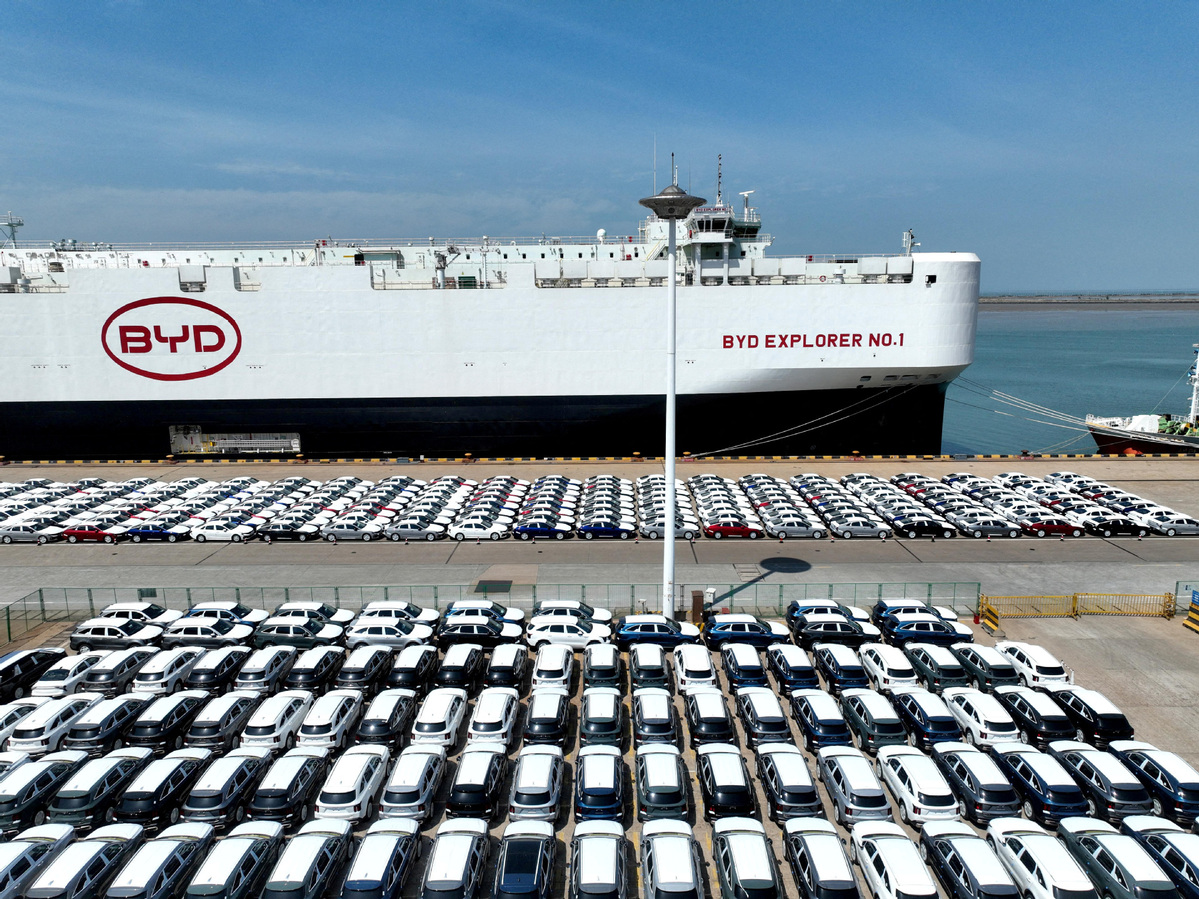China demands immediate removal of new US tariffs
Trade: Introducing new?tariffs contradicts US’ commitments


China has urged the United States to immediately lift the additional tariffs imposed on Chinese products, warning that it will take resolute actions to protect the country's rights and interests, the Ministry of Commerce said on Tuesday.
The US government unveiled new tariffs on Tuesday on a variety of imports from China, including electric vehicles, lithium batteries, photovoltaic cells, critical minerals, semiconductors, steel and aluminum, port cranes and personal protective equipment.
The additional levies will lead to the tariffs on Chinese EV imports jumping from around 25 percent to 100 percent. And with an additional 2.5-percent tariff on all vehicles imported into the US market, the total levies on Chinese EVs will be 102.5 percent.
The US has, for domestic political reasons, abused the Section 301 tariff review process by further increasing tariffs on some Chinese products, politicizing and weaponizing trade issues, the Chinese ministry's spokesperson said in an online statement. "This is a clear example of political manipulation," the official said.
China has expressed strong dissatisfaction with this approach, said the commerce official, who noted that the World Trade Organization has ruled that Section 301 tariffs violate its regulations. Instead of rectifying this, the US continues to act unilaterally, compounding its mistakes, the official added.
The US decision to increase Section 301 tariffs contradicts US President Joe Biden's commitments not to suppress or contain China's development and not to decouple or break ties with China, according to the statement.
The US action also deviates from the spirit of consensus reached between the top leaders of the two countries and will severely affect the atmosphere of bilateral cooperation, said the spokesperson.
Sun Lei, a senior partner at Beijing Dacheng Law Offices, said that if these tariffs are imposed only on China, the practice violates the most-favored-nation principle of the WTO.
"If tariffs are indeed imposed solely on electric vehicles made in China, it would notably impact automakers such as Tesla that have invested heavily in manufacturing facilities in China," said Sun.
For example, once the tariffs are enforced, the EVs currently produced in China would in effect be limited to sales within China or in markets outside the US. This restriction would ultimately lead to an increase in the fixed costs for these automakers, he added.
Chinese new energy products are highly popular in the global market, perfectly meeting the urgent demand of many countries' shift toward green energy, said Chen Bin, deputy director of the expert committee at the Beijing-based China Machinery Industry Federation.
Each new energy vehicle is estimated to cut carbon emissions by approximately 1.66 metric tons annually. In 2023, China exported 1.2 million new energy vehicles, which could reduce annual carbon emissions by around 2 million tons, the Ministry of Commerce said in a separate statement on Tuesday.
Although the prices of Chinese new energy vehicles exported to Europe are lower than those of similar local models, they are still one to two times higher than their prices in China, ensuring significant profits and dispelling any concerns about dumping, the Commerce Ministry said.
Noting the advancement of Chinese EVs and their popularity in many Arab countries, Ahmed Fahmy, head of the League of Arab States' China representative office, said the production capacity is determined by market demand, and free trade is essential.
As global production capacity currently is insufficient to meet the needs of economic recovery, the "China overcapacity" narrative is overly exaggerated, he said.
zhongnan@chinadaily.com.cn




































